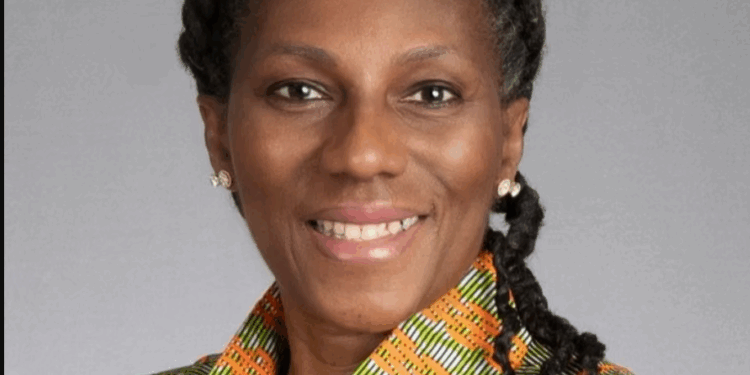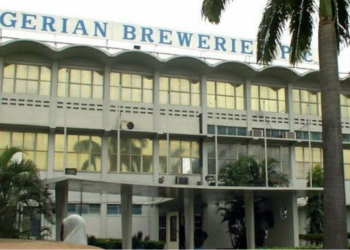The founder and CEO of CG&R Strategy LLC, Juliet Anammah, has said that Nigeria’s retail industry is on the brink of an artificial intelligence revolution, and “ready for agentic AI.”
Speaking at the Africa Retail Congress held at the Lagos Business School on Saturday, the former CEO of Jumia Nigeria argued that the country’s informal yet dynamic retail sector is uniquely positioned to leverage emerging AI tools for growth, inclusion, and efficiency.
“Retail has always been seen as part of another industry; manufacturing, banking, or logistics. It’s time to see it as a standalone asset class,” Anammah said.
“We are ready for agentic AI. Nigerians love to talk, and AI can amplify that natural engagement into smarter, data-driven commerce,” she added.
The Africa Retail Congress 2025 brought together industry leaders, policymakers, and academics to explore practical, game-changing strategies for integrating new tools across formal and informal markets under the theme “Transforming Retail with Emerging Technologies.” The event provided a platform for networking, knowledge sharing, and celebrated the successes of Africa’s leading retail organisations.
Retail: Fastest industry to adopt technology
Anammah highlighted that retail, often dismissed as informal, is actually one of Nigeria’s most technology-absorptive sectors.
She cited the rapid adoption of warehouse management systems, payment solutions, and last-mile logistics tools as evidence that local retailers are not lagging behind global peers.
“Studies show that retail is the fastest industry to adopt new technology,” she said. “Whatever the consumer adopts, retail quickly integrates — that’s our edge.”
Global retail innovation
Drawing global parallels, Anammah referenced innovations such as Amazon’s “Just Walk Out” stores, Walmart’s ChatGPT-enabled shopping, and OpenAI and Stripe’s new commerce protocol, which eliminate clicks in favor of conversational transactions.
She noted that similar transformations could take root in Africa, especially through conversational AI agents embedded in retail platforms.
Anammah also pointed to Latin American models like Tiendo Pago, where small shop owners use AI companions to manage inventory, forecast sales, and pre-order goods.
“Imagine a local trader in Nasarawa chatting with an AI named Obi,” she said. “Obi reminds them what to restock, tracks inventory, and drives more sales — that’s not science fiction, that’s now.”
60% of Nigerian consumers still use feature phones
However, she cautioned that the future of AI in African retail must be inclusive.
With about 60% of Nigerian consumers still using feature phones and most transactions happening in informal markets, she called for designing solutions that “work for small wallets and local realities.”
“The kiosk, the neighborhood shop, and the tabletop are not problems to be formalized they are opportunities,” Anammah emphasized. “We must build technology that works with informality, not against it.”
She urged stakeholders to rethink retail’s role in national development — from advocating infrastructure funds for logistics to driving smartphone penetration for digital access.
“Retailers should be the ones investing in roads and digital inclusion,” she said. “Because without those, the cost of reaching the consumer remains high.”
Concluding her presentation, Anammah reiterated her belief that the country is ready to embrace the next wave of AI. “If there’s anything Nigerians know how to do, it’s to talk,” she quipped. “We are ready for agentic AI — and ready to reshape African retail with it.”
Nigeria’s retail revolution lies in data, not malls
Also speaking at the congress, Omniretail CEO, Deepankar Rustagi, says the future of Nigeria’s retail economy will not be built on sprawling malls or foreign franchise chains but on the data-driven transformation of the country’s neighborhood stores.
Rustagi said that small traditional retailers, from mom-and-pop shops to open market traders, remain the backbone of Nigeria’s commerce and will define the next phase of retail growth on the continent.
“97% of overall trade in Nigeria happens through neighborhood stores,” Rustagi noted. “And this is not just a Nigerian phenomenon — across Africa, traditional trade still accounts for around 75% of total retail transactions.”
Misunderstanding of Africa’s unique market
Rustagi argued that many investors and policymakers misunderstand the nature of African retail by assuming that Western models such as Walmart, Costco, or 7-Eleven can simply be replicated in Nigeria.
“Saying tomorrow’s retail in Nigeria will be a Walmart or 7-Eleven is forcing a model developed for a different economy into one that requires something entirely different,” he said.
Instead, he called for a focus on right pricing, accessibility, and localized convenience, stressing that Africa’s retail infrastructure and logistics realities differ sharply from those of developed markets.
“Our consumers value proximity and relationships. Driving ten kilometers to find parking in a big mall is not convenience — walking to your local store and getting what you need at the right price is,” he said.
“Rustagi identified data as the single most important differentiator between traditional and modern retail. “The difference between a traditional store and a modern store is only one thing — data,” he emphasized. “It’s not the shape, it’s not the size, it’s not whether they use a POS from Microsoft or Apple. What matters is whether they know what they are doing.”
According to him, most Nigerian retailers currently operate on intuition rather than insight.
“Retail has flourished, but predominantly that flourishment represents only about 10% of its potential — because much of it is driven by gut, not by data,” he said.
Omniretail, which provides digital and data solutions to thousands of small merchants across Nigeria, has been working to close that gap by offering technology tools that help retailers make informed decisions about pricing, inventory, and customer engagement. Rustagi believes that democratizing data access will be the catalyst that unlocks the country’s multi-trillion-naira retail potential.




















